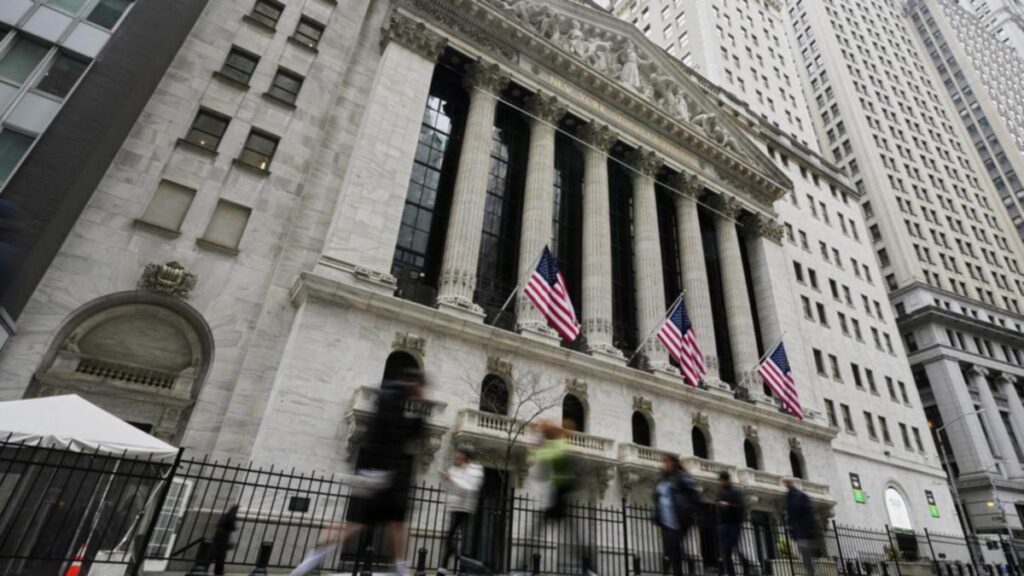Wall Street’s main indexes have risen, boosted by gains in technology stocks after the White House exempted smartphones and computers from new tariffs on Chinese imports, although additional levies on semiconductors remain imminent.
The United States unveiled the exemptions on Friday, but President Donald Trump said he would announce tariff rates for imported semiconductors later in the week.
The exempted tech products will face new duties within the next two months, US Commerce Secretary Howard Lutnick said. These product categories make up about 20 per cent of US imports from China, according to Deutsche Bank.
In early trading on Monday, the Dow Jones Industrial Average rose 416.38 points, or 1.04 per cent, to 40,629.09, the S&P 500 gained 71.87 points, or 1.34 per cent, to 5,435.23 and the Nasdaq Composite gained 281.52 points, or 1.68 per cent, to 17,005.97.
Information technology led sub-sector gains and was up 2.3 per cent. Most megacap and growth stocks rose, with Apple leading the bunch with a 5.4 per cent gain.
Chip stocks also advanced, with the Philadelphia SE Semiconductor index jumping 1.1 per cent. PC maker HP gained four per cent and retailer Best Buy added five per cent.
The CBOE Volatility Index, considered Wall Street’s fear gauge, eased from eight-month highs hit last week and was last at 32.95.
The exemptions would ease some pressures on the cost of consumer goods, notably on Apple products, which would have become “un-sellable” if tariffs went into effect, said Kim Forrest, chief investment officer at Bokeh Capital Partners.
“It feels as if the Trump administration is responding to consumer pressure… the huge tariffs placed on China might be walked back as well,” Forrest said.
The reprieve was the latest change to Trump’s back and forth tariff policies that have escalated trade tensions between the US and China and triggered the wildest swings on Wall Street since the 2020 COVID-19 pandemic.
After slumping earlier last week, the S&P 500 notched its biggest weekly gain on Friday since November 2023. But the index was still about 4.5 per cent away from levels seen before April 2’s “Liberation Day” tariff announcement.
With markets closed on Good Friday, the shorter trading week ahead will be scrutinised for signs on how policymakers, businesses and consumers assess the economic outlook amid such policy uncertainty.
Goldman Sachs’ shares were up 2.1 per cent after the bank reported higher first-quarter profit. Quarterly earnings from companies including Netflix are on the radar this week.
Among other stocks, obesity drugmakers gained after Pfizer said it would end the development of its experimental weight-loss pill. Eli Lilly and Viking Therapeutics were up one per cent and 13 per cent, respectively.
Citigroup downgraded US equities to “neutral” from “overweight” on expectations that tariffs would hit earnings growth.
Commentary from US Federal Reserve Chair Jerome Powell and retail sales data for March, both expected on Wednesday, will also be watched.
Advancing issues outnumbered decliners by a 7.36-to-1 ratio on the NYSE, and by a 3.83-to-1 ratio on the Nasdaq.
The S&P 500 posted one new 52-week high and no new lows, while the Nasdaq Composite recorded 19 new highs and 19 new lows.



